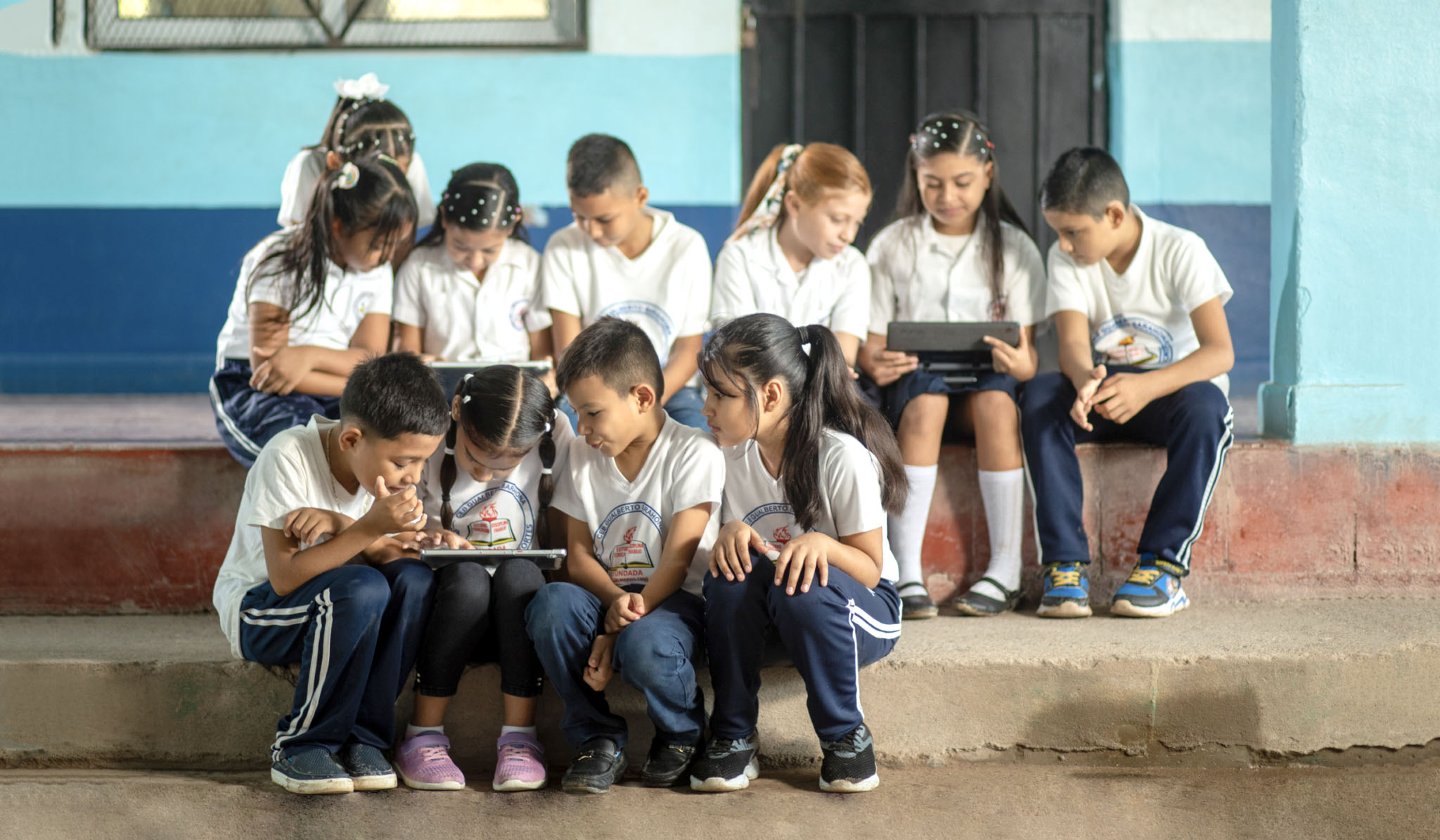The Central American country of Honduras couldn’t be missed on Giga’s live map of school connectivity. The entire country looks red, with almost all of its 16,000+ schools remaining unconnected to the internet. Only 979 schools – or less than 6 per cent of the total – have access to the learning opportunities the internet brings.
But the few schools that have been connected tell a story of hope. In 2023, Giga and its partners have helped connect 40 educational centres and more than 30,000 students in remote, marginalized and rural communities. Shadowed by gang violence and poverty, these schools witnessed a glimmer of hope when the internet finally came to their communities.
The introduction of technology into these schools has not just been an upgrade in infrastructure; it has fundamentally shifted the educational experience.
Digital resources have enhanced the students’ learning journey and opened a whole new world beyond their communities. Connectivity has made education more appealing and learning more enjoyable for children, turning schools into friendly, safe and protective spaces.

(©UNICEF/Honduras/2023)

(©UNICEF/Honduras/2023)
“The connectivity in our school has been of fundamental importance. We are connecting with the world.”
Manuel Recarte,
Teacher, Gualberto Barahona School, Cortés, Honduras
At the core of Giga’s success in Honduras are the communities, united and organized through management teams dedicated to keeping schools connected. To ensure the sustainability of the Giga strategy, each educational centre has developed a sustainable business model aimed at generating resources to cover the recurring costs of connectivity and other expenses. Initiatives like the set-up of community businesses, such as bakeries, school supply shops and barber shops, convenience stores and small recycling centers, contribute to this model, ensuring that schools do not just go online, but continue to do so. By ensuring the schools remain connected, the sustainable business model has also given livelihood opportunities to the community, including the parents of the students themselves.
Using the success and learnings from Giga’s model, UNICEF Honduras has been providing technical support for a school connectivity project overseen by the Presidential Results-Based Management Directorate in coordination with the Ministry of Education’s Roundtable on Digital Education. Funded by the Inter-American Development, the project initially aimed to connect 700 schools and as of 2024, the goal was raised to 1,700 schools.

(©UNICEF/Honduras/2023)
But more work needs to be done, and the rest of the red dots need to turn green. The ambitious goal is to connect 2,000 schools by 2024 and 10,000 schools by 2026, in line with the implementation roadmap of the Honduran Digital Education Strategy. This vision calls for the collective effort of international cooperation, private enterprises, banks, and state funds from Honduras.
One by one, as the schools go online, there are more reasons to be optimistic about the future of Honduran children.

(©UNICEF/Honduras/2023)
”I would like Giga to reach all parts of the country because there are many schools where it is also needed, and all children have the same rights. This is a
great opportunity because it helps learning – we learn a lot and at the same time that we are having fun. Reimagining education means that it no longer only has to be in books or on the blackboard, that we can also have fun while we learn, think and dream, grow our imagination.”Brianna Salvador,
Student, José Vicente Cáceres Basic Education Center, Cortés, Honduras

